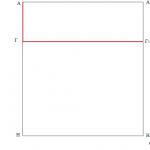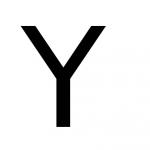When was the Eastern New Year. Happy New Year in Eastern
This material has been prepared as a comprehensive answer to the question of when will the East New Year-2018. The Spring Festival, as it is commonly called in China, has been considered almost the main holiday in the People's Republic of China and a number of East Asian countries for more than 100 years. Although the traditions underlying the Chinese New Year go back to ancient times. Now let's talk about everything in order.
We will immediately note to you so that you do not suffer from this question when reading further text: in 2018 the Year of the Dog is coming, and this will happen on February 16. But more on this a little later.
Since ancient times, traditional Chinese culture obliges every person born in China to honor the New Year. This holiday is literally the most important event in family life. Every year it falls on different numbers, which is due to the fact that it is based on the lunar calendar.
The Chinese believe that the Eastern New Year is the first day of spring, as a result, which goes without saying, if you adhere to exactly the same thought, on this day nature awakens and a new life begins.
As we said earlier in the text, the Chinese New Year is significant, in fact, not only for the Chinese, they are also Han, but also for many Asian national minorities, for example, Manchus, Mongols, Yaotians, Zhuans, Gaoshans, Daurs, Duns, Liyans and etc.
It just so happened that in 1911 the Xinhai Revolution took place, which began with the Wuhan Uprising. One of its results was the adoption of a new style of chronology, which is relevant for China to this day. To distinguish the Chinese New Year - Xinnian - from the European one, it was renamed the Spring Festival - Chunjie. However, today you can often hear that it is also called this: Gonyan.
Many scientists are still arguing about when the New Year, traditional specifically for their culture, was first celebrated in China. Most of them agree that this happened more than a thousand years ago. At that time, it is believed that one of the rituals of the holiday was the rite of sacrifice, which, by the way, can often be seen even today if you visit remote Chinese settlements.
On the other hand, another, more peaceful, perhaps, attribute of the holiday was and remains the custom of creating remarkable decorations for the celebration. This can be expressed either in ordinary wishes, written, naturally, in hieroglyphs, for example, on paper - as a postcard, or in the form of dressed up dolls large sizes, demonstrated in front of a large audience of adherents of such a significant event in the life of a large number of Asian peoples.
Chinese New Year is the best reason to start life with a clean slate
It is believed that the Chinese New Year is almost the best occasion to resolve a dispute with a person that has been going on for a very long time. On this holiday, you need to forget - and it’s better to do it once and for all - about all grievances and forgive your neighbor, wishing literally everyone around you peace, goodness and boundless happiness.

By Eastern calendar, 2018 is . For his followers it will be 4716. It will come on February 16th. Traditionally, Chinese New Year falls between January 21 and February 21 in the Gregorian calendar. If we start talking about eastern traditions, then for their admirers at this time the winter new moon begins, which marks the completion of the full lunar cycle. The winter new moon replaces the winter solstice. This is how it can be explained briefly.
You can often hear that the Chinese New Year is called the Lunar New Year, which in the context of all of the above, it seems to us, is not unreasonable.
Lantern Festival - an enchanting end to the Chinese New Year celebrations
In the cycle of New Year's celebrations among the Chinese and many other representatives of East Asia, there is the Lantern Festival, which is celebrated on the 15th day of the 1st month, if calculated by Lunar calendar. It becomes the logical conclusion of the traditional Chinese New Year, which lasted two weeks. Actually, on this day, custom obliges people to light colorful Street lights. This tradition, according to scientists, is too ancient: they believe that the first such case occurred back in 180 BC.

It is easy to calculate that in 2018, the Lantern Festival in China will be celebrated on March 2. It is on this day that you can see countless folklore performances right on the streets: dancing for every taste and color, walking on stilts, eating sweets and much more.
When the Chinese New Year 2018 arrives, the rest of the world, where they adhere to the Gregorian calendar, will already be closely preparing to welcome the long-awaited spring as such. For many people, a month and a half has already passed since the beginning of the New Year, while they still have another half month left to meet the upcoming beginning of March with dignity. And when the next Lantern Festival comes to China, the rest of the world will already be immersed in the web of spring blues for the second day. Literally and figuratively.
In conclusion, we note that the Chinese New Year is not just the most important, but also the longest holiday in the Chinese calendar, where both solar (which is more suitable for agriculture) and solar-lunar types are equally in demand. Perhaps because it is the longest, it is the most important, or vice versa. What do you think?
When is the Eastern New Year 2018?
When is 2018 according to the Chinese calendar? Once again we answer this question specifically: February 16th. It will be Friday. The fifteen-day New Year celebration in China will end on March 2, also on Friday.
And yes, once again: 2018 according to the Eastern calendar will be the Year of the Dog. Now you know almost everything you need to know about Chinese traditions related to the New Year's Eve. You just have to decide for yourself: stay at home and celebrate this kind of holiday remotely, or go to a place where you will literally become part of the holiday.
The traditional and familiar Gregorian calendar, according to which one year changes to another on the night of January 1, is radically different from the Chinese calendar.
This calendar is based not on the specifics of the cycle of the Earth’s passage around the Sun, but on many years of astrological research, as well as the peculiarities of the calculation itself.
Find out when New Year 2017 begins Chinese calendar, not difficult, this date falls on the 28th day of January, it is much more difficult to understand all the intricacies of the Asian chronology.
New Year 2017 according to the Chinese calendar
The beginning of the next year according to the Chinese calendar is associated with the change of season: the first month determines the awakening of nature and the beginning of agricultural work. And in order to clearly determine the start date of the new year, astrologers use the zodiac circle.
The day when the first new moon occurs in the constellation Aquarius is considered the first day of the new year. This date varies, but always falls within a certain time period ranging from January 21 to February 20.
Calculating, we find that New Year 2017 according to the Chinese calendar falls on January 28, 2018 at 3.06
According to the Chinese calendar, the Fire Rooster will replace the Monkey.
The Chinese style celebration itself is also different. If Europeans celebrate the New Year for one night, then in Asian countries this process stretches for ten days at once.
This is one of the most popular holidays not only in China, but also in many other Asian countries. The year also ends unconventionally. The year of the Fire Rooster changes not on December 31, 2017, or even on January 28 next year. The Fire Rooster will finally cede its rights to the successor of the Yellow Dog only on February 15, 2018.
How to celebrate New Year according to the Chinese calendar
So, don't forget to celebrate Chinese New Year 2017 on January 28, 2017! But the usual hospitable feast will not work as a holiday.
In China, New Year is celebrated differently and the traditions of celebration are directly related to the name of the celebrations, called Chunzi. It is believed that Chun is a mythical monster that seeks to destroy all living things, and he is afraid of noise and bright flashes. That’s why the Chinese celebrate the coming of the year with songs, dances, and noisy fireworks. The presence of garlands and firecrackers is required. The noisier the celebration, the further away the evil spirits are.
Asian countries celebrate the New Year differently than we do, but both cultures have something in common. By observing the traditions of celebrating the New Year according to the eastern calendar, you can attract happiness, wealth and good luck into your life.
Every year everything more people wondering: when will the New Year begin according to the Eastern calendar? The reason for the interest lies in traditions that are in many ways similar to ours, but at the same time have some extremely interesting differences. Knowing how it is customary to celebrate this holiday among residents of Asian countries, you can better understand the roots of the New Year according to the Eastern calendar.
When is the New Year according to the Eastern calendar?
In eastern Asian countries there is no fixed date for celebrating the New Year: the holiday is celebrated on the first New Moon after the winter Solstice. The vacation lasts on average 15 days.

The general leitmotif of the New Year according to the eastern calendar is the obligatory presence of red, fireworks, firecrackers and loud laughter: it is believed that with their help you can drive out evil spirits that bring troubles in the coming year.
Red color is a symbol of wealth and prosperity, so it is present not only in the decoration of streets and houses, but also in gift packaging, clothing and interior. People everywhere give money in red envelopes: it is believed that the color of the packaging will increase the wealth of the recipient. And here is white and blue colors are strictly prohibited and can be perceived as extremely inappropriate, because these two colors are mourning in Asian countries.

New Year celebration traditions
Each of the 15 holidays has its own unique schedule, which allows you to cover all areas of life at the very beginning of the year and not spend this time in vain. Residents of Asian countries treat this holiday the same way as we do: it is considered a family holiday, and even distant relatives come to the common hearth to celebrate the New Year together.
Day 1: The New Year is celebrated with family, symbolically burning bamboo chopsticks. Afterwards there is a long family dinner filled with laughter and fun, fireworks, firecrackers and mass celebrations. On this day, it is customary to come to the cemetery and honor the memory of deceased relatives.

Day 2: On the morning of the second day, the whole family gets up for a common prayer, in which they ask for prosperity for the whole year, prudence, wisdom and health. After this, a visit to loved ones begins with the obligatory delivery cash gift in a red envelope. Also on this day it is customary to welcome the poor and give alms.
Days 3 and 4: This period of celebrating the New Year according to the eastern calendar is dedicated to friends and acquaintances: communication among friends strengthens connections and contributes to the continuation of communication in the New Year. Not coming to visit someone if invited is considered a refusal to further friendship.

Days 5 and 6: At this time, business organizations begin to resume their work, but the day always begins with fireworks. According to energy, the 5th and 6th days of the New Year are considered a time of wealth and material values, so many people perform traditional rituals for prosperity and money.
Day 7: The morning of the seventh day also begins with prayer, but unlike the second day it is often spent alone. Prayer for the well-being of relatives, the health of older relatives and the right path for children is considered an obligatory beginning holiday: This time is dedicated to the soul.

Days 8, 9 and 10: As a rule, by this time all people have already returned to work, but they definitely spend three evenings having a family dinner with their family. This is the time for traditional New Year's cuisine, intimate conversations and plans for the coming year.
Day 11: This day is dedicated to the family ties between father-in-law and son-in-law. Each father-in-law gives his son-in-law a personal celebration and spends time with his daughter's husband, paying tribute to him.

Days 12, 13 and 14: The holidays are approaching their finale - the Lantern Festival. At this time, people buy paraphernalia, try not to eat meat and prepare for the most beautiful spectacle of the year - the transition to a new round of time.
Day 15: The end of the celebration. Traditions of celebrating the New Year according to the eastern calendar include a large-scale lantern festival - an unusually beautiful and stunning spectacle. Cities host a ton of fun events, fireworks displays and an incredible amount of lanterns of all shapes, colors and sizes. This day marks the end of the holidays and a return to normal work rhythm.
During the celebration, great importance is attached to the symbol of the New Year: it is believed that it determines how the period until the next holiday will pass, and can bestow good luck and happiness on anyone. Each year, one of the animals of the eastern calendar is patronized. Knowing more about its features, you can attract wealth, luck and health into your life. We wish you a happy year and good luck in all your endeavors. Be happy and don't forget to press the buttons and
Today, January 28, marks the beginning of the Year of the Fire Rooster in the eastern horoscope or the Chinese New Year. In order to find out what the year of the Fire Rooster has in store for you personally, get your personal Chinese horoscope. The owner of the year - the Red Rooster - has already begun to establish his own rules, and we all said goodbye to the Fire Monkey. Chinese New Year or Eastern New Year begins on the first new moon of 2017, which is today, January 28th. The Chinese New Year holiday symbolizes the beginning of a new cycle, the rebirth of nature. Every year the date for celebrating the New Year according to the Eastern calendar is different. In eastern countries that live according to this calendar, New Year celebrations last from two weeks to a month. At this time, it is good to guess your fate and perform various rituals to change your future.
The Chinese horoscope is not based on the solar cycle, i.e. the revolution of the Sun across all 12 signs of the Zodiac, like a real Western calendar, but on the lunar cycle. Therefore, the point of the Chinese New Year is the second new moon after winter solstice 21 December. The Chinese horoscope is calculated by combining in a special way the lunar cycle and the period of movement of Jupiter, which is called the second Sun. Jupiter symbolizes wealth, success, recognition, rewards and honors.
The Eastern calendar consists of 12 signs, which are assigned the names and characters of animals: Rat, Ox, Tiger, Rabbit, Dragon, Snake, Horse, Goat, Monkey, Rooster, Dog and Boar. Each year of the eastern calendar, in addition to its animal ruler, has a certain element: Wood, Fire, Earth, Metal, Water. In addition to the elements, the year also has its own color: blue, red, yellow, white, black. Both the elements and colors give the year itself and the person born at this time their own character traits and, accordingly, destinies.

For each person, based on the sign of the Chinese horoscope, as well as the elements and colors, you can calculate how favorable a certain period (from a month to a year) will be, which elements you need to be wary of, and which will be especially favorable for your sign.
From your personal Chinese horoscope you can find out what things will be especially favorable for you in the next 3 months, people of which specific sign of the Chinese horoscope or element will bring you luck, wealth and prosperity. You will receive information on how to plan your time and your affairs, based on the most favorable periods according to the Chinese horoscope. You will find out how lucky you will be in love, in money matters, and whether success in general awaits you during the chosen period.
The personal Chinese horoscope will help you calculate your personal periods of luck and, based on this, draw up an action plan for the next 3 months, guaranteeing you success in business, in love and in life in general.






